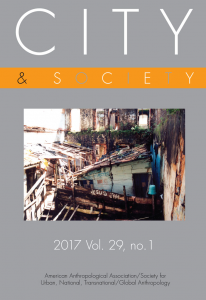Doctors’ Orders – Sociology Lens Q&A
Can you give us some background information about the US medical residency system? The US medical residency system is peculiar in the sense that on any given year, there are consistently fewer prospective American MD medical student (USMD) applicants than there are available positions—by between 25 and 40%. This has been true since the about 1950s. So the country relies on international and osteopathic medical graduates (what I collectively call “non-USMDs”) to fill residency positions in fields like internal medicine,...



















1540-6210/asset/society_affiliation_image.gif?v=1&s=812a48e1b22880cc84f94f210b57b44da3ec16f9)
